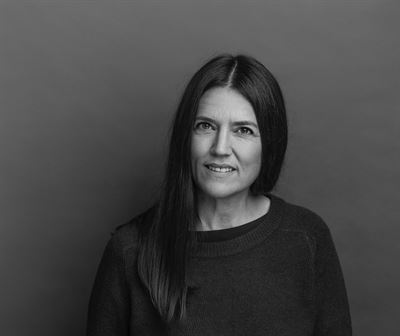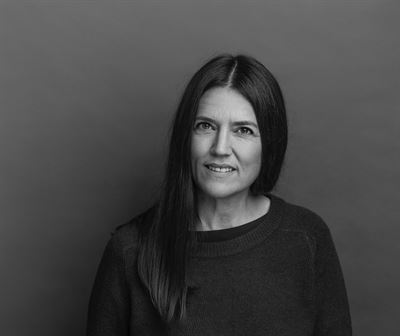Marknadsnyheter
Enhertu approved in the US for patients with HER2-positive metastatic breast cancer treated with a prior anti-HER2-based regimen
Approval broadens indication for AstraZeneca and Daiichi Sankyo’s Enhertu to earlier use in metastatic breast cancer. Based on ground-breaking DESTINY-Breast03 results showing Enhertu reduced the risk of disease progression or death by 72% versus trastuzumab emtansine (T-DM1).
AstraZeneca and Daiichi Sankyo’s Enhertu (trastuzumab deruxtecan) has been approved in the US for the treatment of adult patients with unresectable or metastatic HER2-positive breast cancer who have received a prior anti-HER2-based regimen either in the metastatic setting, or in the neoadjuvant or adjuvant setting and have developed disease recurrence during or within six months of completing therapy.
Enhertu is a specifically engineered HER2-directed antibody drug conjugate (ADC) being jointly developed and commercialised by AstraZeneca and Daiichi Sankyo.
The approval by the Food and Drug Administration (FDA) was based on positive results from the DESTINY-Breast03 Phase III trial that showed Enhertu reduced the risk of disease progression or death by 72% versus trastuzumab emtansine (T-DM1) (hazard ratio [HR] 0.28; 95% confidence interval [CI]: 0.22-0.37; p<0.0001) in patients with HER2-positive unresectable and/or metastatic breast cancer previously treated with trastuzumab and a taxane.
The approval was granted under the FDA’s Real-Time Oncology Review (RTOR) programme and converts the accelerated approval of Enhertu in later line HER2-positive metastatic breast cancer to standard approval, broadening Enhertu’s breast cancer indication in the US to earlier lines of use in patients with HER2-positive metastatic breast cancer.
Erika Hamilton, MD, Director of the Breast Cancer and Gynecological Cancer Research Program for Sarah Cannon Research Institute, Nashville, Tennessee, US, said: “Enhertu has demonstrated significant progression-free survival in the earlier metastatic setting, potentially establishing it as a new standard of care in previously treated patients with HER2-positive metastatic breast cancer. Today’s approval is an important milestone for the clinical community as we will now be able to offer Enhertu to these patients earlier in their treatment.”
Catherine Ormerod, Executive Vice President, Strategy and Mission, Living Beyond Breast Cancer, said: “This is an important day for the breast cancer community. With this approval, Enhertu now provides a new treatment option for patients with HER2-positive metastatic breast cancer which can be used earlier in treatment to potentially delay progression of disease.”
Dave Fredrickson, Executive Vice President, Oncology Business Unit, AstraZeneca, said: “Enhertu is already established in the later-line treatment of patients with HER2-positive metastatic breast cancer, and we are thrilled that with this approval, patients in the US will now be able to access the transformative potential of Enhertu earlier in their treatment. We look forward to bringing this important, potentially paradigm-shifting medicine to even more patients across the globe in an earlier setting as quickly as possible.”
Ken Keller, Global Head, Oncology Business and President and CEO, Daiichi Sankyo, Inc, said: “Today’s FDA approval, which converts the accelerated approval of Enhertu to regular approval, highlights the importance of the FDA’s accelerated pathway that allows for earlier approval of medicines to treat serious medical conditions such as breast cancer. Data from DESTINY-Breast03 not only confirmed the results of DESTINY-Breast01, but also demonstrated the superiority of Enhertu in prolonging progression-free survival compared to T-DM1 in an earlier setting of HER2-positive metastatic breast cancer.”
The DESTINY-Breast03 Phase III trial results were recently published online in The New England Journal of Medicine.1 In the trial, the safety profile of Enhertu was consistent with previous clinical trials, with no new safety concerns identified and no Grade 4 or 5 treatment-related interstitial lung disease events.
Based on the DESTINY-Breast03 data, fam-trastuzumab deruxtecan-nxki (Enhertu) recently was added to the NCCN Clinical Practical Guidelines in Oncology (NCCN Guidelines®) as the Category 1 preferred regimen as second-line therapy for recurrent unresectable (local or regional) or Stage IV HER2-positive disease.2
The US regulatory submission was reviewed under Project Orbis, which provides a framework for concurrent submission and review of oncology medicines among participating international partners. Five national health authorities collaborated with the FDA on this review, including the Australian Therapeutic Goods Administration, the Brazilian Health Regulatory Agency (ANVISA), Health Canada, Israel’s Ministry of Health Pharmaceutical Administration and Switzerland’s Swissmedic.
This approval follows the recent Priority Review and Breakthrough Therapy Designation of Enhertu in the US in this earlier setting.
Regulatory applications for Enhertu are currently under review in Europe, Japan and several other countries for the treatment of adult patients with unresectable or metastatic HER2-positive breast cancer who have received a prior anti-HER2-based regimen based on the results from the DESTINY-Breast03 trial.
Notes
Financial considerations
Following this approval for Enhertu in the US, an amount of $100m is due from AstraZeneca to Daiichi Sankyo as a 2nd-line milestone payment in HER2-positive metastatic breast cancer. In AstraZeneca, the milestones paid will be capitalised as an addition to the upfront payment made in 2019 and subsequent capitalised milestones and amortised through the profit and loss.
Sales of Enhertu in the US are recognised by Daiichi Sankyo. AstraZeneca reports its share of gross profit margin from Enhertu sales in the US as collaboration revenue in the Company’s financial statements. For further details on the financial arrangements, please consult the collaboration agreement from March 2019.
HER2-positive breast cancer
Breast cancer is the most common cancer and is one of the leading causes of cancer-related deaths worldwide and in the US.3,4 More than two million patients with breast cancer were diagnosed in 2020, with nearly 685,000 deaths globally.3 More than 290,000 new cases are expected in the US in 2022, with more than 43,000 deaths.5 Approximately one in five cases of breast cancer are considered HER2-positive.6
HER2 is a tyrosine kinase receptor growth-promoting protein expressed on the surface of many types of tumours including breast, gastric, lung and colorectal cancers.7 HER2 protein overexpression may occur as a result of HER2 gene amplification and is often associated with aggressive disease and poor prognosis in breast cancer.8
Despite initial treatment with trastuzumab and a taxane, patients with HER2-positive metastatic breast cancer will often experience disease progression.9 More treatment options are needed to further delay progression and extend survival.9-11
DESTINY-Breast03
DESTINY-Breast03 is a global, head-to-head, randomised, open-label, registrational Phase III trial evaluating the efficacy and safety of Enhertu (5.4mg/kg) versus T-DM1 in patients with HER2-positive unresectable and/or metastatic breast cancer previously treated with trastuzumab and a taxane.
The primary efficacy endpoint of DESTINY-Breast03 is progression-free survival (PFS) based on blinded independent central review. Secondary efficacy endpoints include overall survival, objective response rate (ORR), duration of response, PFS based on investigator assessment and safety.
DESTINY-Breast03 enrolled approximately 500 patients at multiple sites in Asia, Europe, North America, Oceania and South America. For more information about the trial, visit ClinicalTrials.gov.
Enhertu
Enhertu is a HER2-directed ADC. Designed using Daiichi Sankyo’s proprietary DXd ADC technology, Enhertu is the lead ADC in the oncology portfolio of Daiichi Sankyo and the most advanced programme in AstraZeneca’s ADC scientific platform. Enhertu consists of a HER2 monoclonal antibody attached to a topoisomerase I inhibitor payload, an exatecan derivative, via a stable tetrapeptide-based cleavable linker.
Enhertu (5.4mg/kg) is approved in the US for the treatment of adult patients with unresectable or metastatic HER2-positive breast cancer who have received a prior anti-HER2-based regimen either in the metastatic setting, or in the neoadjuvant or adjuvant setting and have developed disease recurrence during or within six months of completing therapy, based on results from the DESTINY-Breast03 trial.
Enhertu (5.4mg/kg) is also approved in approximately 40 countries for the treatment of adult patients with unresectable or metastatic HER2-positive breast cancer who have received two or more prior anti-HER2-based regimens based on the results from the DESTINY-Breast01 trial.
Enhertu (6.4mg/kg) is approved in several countries for the treatment of adult patients with locally advanced or metastatic HER2-positive gastric or gastroesophageal junction adenocarcinoma who have received a prior trastuzumab-based regimen based on the results from the DESTINY-Gastric01 trial.
Enhertu development programme
A comprehensive development programme is underway globally, evaluating the efficacy and safety of Enhertu monotherapy across multiple HER2-targetable cancers, including breast, gastric, lung and colorectal cancers. Trials in combination with other anticancer treatments, such as immunotherapy, are also underway.
Regulatory applications for Enhertu are currently under review in Europe, Japan and several other countries for the treatment of adult patients with unresectable or metastatic HER2-positive breast cancer who have received a prior anti-HER2 based regimen based on the results from the DESTINY-Breast03 trial.
Enhertu was granted Breakthrough Therapy Designation in the US for the treatment of adult patients with unresectable or metastatic HER2-low (IHC 1+ or IHC 2+/ISH-negative) breast cancer who have received a prior systemic therapy in the metastatic setting or developed disease recurrence during or within six months of completing adjuvant chemotherapy, based on the results of the DESTINY-Breast04 trial. Patients with hormone receptor (HR) positive breast cancer should additionally have received or be ineligible for endocrine therapy.
Enhertu is also currently under review in the US for the treatment of adult patients with unresectable or metastatic non-small cell lung cancer (NSCLC) whose tumours have a HER2 (ERBB2) mutation and who have received a prior systemic therapy, based on the DESTINY-Lung01 trial, and in Europe for the treatment of adult patients with locally advanced or metastatic HER2-positive gastric or GEJ adenocarcinoma who have received a prior anti-HER2-based regimen based on the DESTINY-Gastric01 and DESTINY-Gastric02 trials.
Daiichi Sankyo collaboration
Daiichi Sankyo Company, Limited (TSE:4568) [referred to as Daiichi Sankyo] and AstraZeneca entered into a global collaboration to jointly develop and commercialise Enhertu (a HER2-directed ADC) in March 2019, and datopotamab deruxtecan (DS-1062; a TROP2-directed ADC) in July 2020, except in Japan where Daiichi Sankyo maintains exclusive rights. Daiichi Sankyo is responsible for manufacturing and supply of Enhertu and datopotamab deruxtecan.
AstraZeneca in breast cancer
Driven by a growing understanding of breast cancer biology, AstraZeneca is starting to challenge, and redefine, the current clinical paradigm for how breast cancer is classified and treated to deliver even more effective treatments to patients in need – with the bold ambition to one day eliminate breast cancer as a cause of death.
AstraZeneca has a comprehensive portfolio of approved and promising compounds in development that leverage different mechanisms of action to address the biologically diverse breast cancer tumour environment. AstraZeneca aims to continue to transform outcomes for HR-positive breast cancer with foundational medicines Faslodex (fulvestrant) and Zoladex (goserelin) and the next-generation oral selective oestrogen receptor degrader (SERD) and potential new medicine camizestrant.
PARP inhibitor Lynparza (olaparib) is a targeted treatment option that has been studied in HER2-negative early and metastatic breast cancer patients with an inherited BRCA mutation. AstraZeneca with MSD (Merck & Co., Inc. in the US and Canada) continue to research Lynparza in metastatic breast cancer patients with an inherited BRCA mutation and are exploring new opportunities to treat these patients earlier in their disease.
Building on the first approval of Enhertu, a HER2-directed ADC, in previously treated HER2-positive metastatic breast cancer, AstraZeneca and Daiichi Sankyo are exploring its potential in earlier lines of treatment and in new breast cancer settings.
To bring much needed treatment options to patients with triple-negative breast cancer, an aggressive form of breast cancer, AstraZeneca is testing immunotherapy Imfinzi (durvalumab) in combination with other oncology medicines, including Lynparza and Enhertu, evaluating the potential of AKT kinase inhibitor, capivasertib, in combination with chemotherapy, and collaborating with Daiichi Sankyo to explore the potential of TROP2-directed ADC, datopotamab deruxtecan.
AstraZeneca in oncology
AstraZeneca is leading a revolution in oncology with the ambition to provide cures for cancer in every form, following the science to understand cancer and all its complexities to discover, develop and deliver life-changing medicines to patients.
The Company’s focus is on some of the most challenging cancers. It is through persistent innovation that AstraZeneca has built one of the most diverse portfolios and pipelines in the industry, with the potential to catalyse changes in the practice of medicine and transform the patient experience.
AstraZeneca has the vision to redefine cancer care and, one day, eliminate cancer as a cause of death.
AstraZeneca
AstraZeneca (LSE/STO/Nasdaq: AZN) is a global, science-led biopharmaceutical company that focuses on the discovery, development, and commercialisation of prescription medicines in Oncology, Rare Diseases, and BioPharmaceuticals, including Cardiovascular, Renal & Metabolism, and Respiratory & Immunology. Based in Cambridge, UK, AstraZeneca operates in over 100 countries and its innovative medicines are used by millions of patients worldwide. Please visit astrazeneca.com and follow the Company on Twitter @AstraZeneca.
Contacts
For details on how to contact the Investor Relations Team, please click here. For Media contacts, click here.
References
- Cortes J, et al. Trastuzumab Deruxtecan versus Trastuzumab Emtansine for Breast Cancer. N Engl J Med 2022; 386:1143-1154.
- Referenced with permission from the NCCN Clinical Practice Guidelines in Oncology (NCCN Guidelines®) for Breast Cancer V2.2022. © National Comprehensive Cancer Network, Inc. 2022. All rights reserved. Accessed May, 2022. To view the most recent and complete version of the guideline, go online to NCCN.org. NCCN makes no warranties of any kind whatsoever regarding their content, use or application and disclaims any responsibility for their application or use in any way.
- Sung H, et al. Global Cancer Statistics 2020: GLOBOCAN Estimates of Incidence and Mortality Worldwide for 36 Cancers in 185 Countries. CA Cancer J Clin. 2021; 10.3322/caac.21660.
- Centers for Disease Control and Prevention. Available at: https://gis.cdc.gov/Cancer/USCS/#/AtAGlance/. Accessed May 2022.
- American Cancer Society. Cancer Facts & Figures 2022. Available at: https://www.cancer.org/content/dam/cancer-org/research/cancer-facts-and-statistics/annual-cancer-facts-and-figures/2022/2022-cancer-facts-and-figures.pdf. Accessed May 2022.
- Ahn S, et al. HER2 status in breast cancer: changes in guidelines and complicating factors for interpretation. J Pathol Transl Med. 2020; 54(1): 34-44.
- Iqbal N, et al. Human Epidermal Growth Factor Receptor 2 (HER2) in Cancers: Overexpression and Therapeutic Implications. Mol Biol Int. 2014;852748.
- Pillai R, et al. HER2 mutations in lung adenocarcinomas: A report from the Lung Cancer Mutation Consortium. Cancer. 2017;1;123(21):4099-4105.
- Barok M, et al. Trastuzumab emtansine: mechanisms of action and drug resistance. Breast Cancer Res. 2014; 16(2):209.
- Mounsey L, et al. Changing Natural History of HER2-Positive Breast Cancer Metastatic to the Brain in the Era of New Targeted Therapies. Clin Breast Cancer. 2018;18(1):29-37.
- Martínez-Sáez O, et al. Current and Future Management of HER2-Positive Metastatic Breast Cancer. JCO Oncol Pract. 2021. 10.1200/OP.21.00172.
Marknadsnyheter
Regeringen föreslår lättnader i byggkraven för studentbostäder
Regeringen har beslutat om en lagrådsremiss med förslag till lättnader i byggkraven för studentbostäder. Syftet är att öka möjligheterna till flexibilitet vid byggandet.
– På många studieorter är det svårt för studenter att hitta boende. Därför behöver byggregelverket förenklas. Syftet är att möjliggöra för fler studentbostäder genom sänkta byggkostnader och ökad flexibilitet, säger infrastruktur- och bostadsminister Andreas Carlson.
Förslaget innebär att det blir möjligt att göra undantag från kraven på tillgänglighet och användbarhet i en byggnad som innehåller studentbostäder. Undantagen ska kunna tillämpas vid både nyproduktion och vid ändring av en byggnad.
Det ska vara möjligt att göra undantag för högst 80 procent av studentbostäderna i ett byggprojekt. Minst 20 procent av studentbostäderna ska fortfarande uppfylla gällande krav på tillgänglighet och användbarhet för personer med nedsatt rörelse- eller orienteringsförmåga.
Lagändringen ger större flexibilitet vid byggande av studentbostäder och skapar fler tänkbara sätt att utforma planlösningar. Till exempel kan bostadsytan minskas och fler bostäder rymmas inom en given yta.
De föreslagna undantagen ska inte hindra personer med funktionsnedsättning att vara delaktiga i sociala sammanhang. En studentbostad som omfattas av undantagen ska kunna besökas av en person med nedsatt rörelse- eller orienteringsförmåga.
Regeringen breddar också definitionen av studentbostäder till att inkludera all vuxenutbildning för att göra det möjligt för fler kommuner att erbjuda studentbostäder.
Förslagen föreslås träda i kraft den 1 juli 2025.
Lagrådsremissen: Lättnader i byggkraven för studentbostäder – Regeringen.se
Presskontakt
Ebba Gustavsson
Pressekreterare hos infrastruktur- och bostadsminister Andreas Carlson
Telefon (växel) 08-405 10 00
Mobil 076-12 70 488
ebba.gustavsson@regeringskansliet.se
Marknadsnyheter
“Vi behöver tillsammans enas om vettiga avtal, som sätter standard för branschen”


Sveriges Radios Kulturnytt gör just nu en mycket välkommen granskning av villkoren i musikbranschen. Igår lyftes artisten Siw Malmkvists situation med ett avtal som inte förnyats på över 60 år. Hennes situation är tyvärr långt ifrån unik. Musikerförbundet har länge uppmärksammat att majorbolagen fortsätter att betala extremt låga royaltynivåer till artister vars kontrakt skrevs på 1960-talet – en tid då digital streaming inte existerade.
– Jag kan intyga att artisterna som talar ut i P1 är långt ifrån ensamma om sin situation och vi uppmanar deras artistkollegor att gå ut med sitt tydliga stöd till de som vågar bryta tystnaden om oskäliga ersättningar, säger Musikerförbundets ordförande Karin Inde.
Musiker och artister skapar det värde som skivbolagen tjänar pengar på, men ändå ser vi gång på gång hur bolagen behåller stora delar av intäkterna. Att en av Sveriges mest folkkära artister, med en karriär som sträcker sig över decennier, fortfarande har en oskälig royalty är ett tydligt bevis på branschens obalans.
– Tystnadskulturen kring prissättning är enbart bra för bolagen. Både artister och musiker skulle verkligen tjäna på att dela med sig till varandra om hur betalningar och dealar verkligen ser ut. Förstås i trygga, egna rum. Det är bara bolagen som tjänar på att vi inte pratar med varandra om pengar, säger Karin Inde.
Stort tack till de modiga artister som ser till att lyfta problematiken! För att vi ska få till en i grunden mer rättvis musikbransch behöver de stora parterna i sammanhanget – skivbolagen, musikerna och artisterna – göra som de flesta andra svenska branscher lyckas med:
– Vi behöver tillsammans enas om vettiga och balanserade avtal, som sätter standard för branschen. Musikerförbundet är redo att göra vår del i arbetet för bättre villkor i musikbranschen, frågan är om skivbolagen är redo, säger Karin Inde.
Karin Inde
Förbundsordförande
karin.inde@musikerforbundet.se
+46 (0)704447228
Musikerförbundet är fackförbundet för professionella musiker och artister. Vi arbetar för förbättrade upphovsrättsliga och arbetsrättsliga villkor och för att våra medlemmar ska få en rättvis del av de värden de skapar i samhället.
Marknadsnyheter
Bönor från egen kaffeskog, sump till jord – Viking Lines nya kaffe gör gott på många olika sätt


Viking Lines resenärer dricker varje år 8,5 miljoner koppar kaffe. Nu satsar rederiet på ett helt nytt kaffe som ger minskade klimatutsläpp och bättre levnadsvillkor för odlarna. Kaffet från Slow Forest odlas på rederiets egen odling i Laos utan kemiska gödningsmedel, handplockas och rostas därefter i Danmark.
Allt kaffe som serveras på Viking Lines fartyg är nu hållbart producerat Slow Forest-kaffe, odlat på rederiets 75 hektar stora odling på högplatåerna i Laos och rostat i Danmark. Kaffeplantorna odlas bland träd på återbeskogad mark, i stället för på traditionellt skövlade plantager. Viking Lines odling ligger i en kolsänka där målsättningen är att plantera 30 000 träd, vilket innebär nästan 400 träd per hektar. Kaffeskogen förbättrar också den lokala biologiska mångfalden i området.
Odlingen, bearbetningen och rostningen av kaffet hanteras av Slow Forest Coffee. För företaget är det viktigt att produktionskedjan är rättvis och transparent. Utöver miljöfördelarna erbjuder Slow Forest bättre lönevillkor och sjukersättning för byns odlare.
”Den traditionella kaffetillverkningens koldioxidavtryck är stort och merparten av intäkterna går till Europa i stället för produktionsländerna. Vi ville göra annorlunda. Våra kunder vill göra hållbara val, och nu kan de njuta av sitt kaffe med bättre samvete än någonsin tidigare,” berättar Viking Lines restaurangchef Janne Lindholm.
Bönorna till Slow Forest-kaffet får sakta mogna i skuggan av träden, utan kemiska gödningsmedel. De plockas också för hand, vilket avsevärt förbättrar kaffets kvalitet och smak. Viking Lines nya kaffe består till 100 procent av Arabica-bönor, med en balanserad syrlighet samt smak av nötter och choklad. Rostningsprofilen har skapats av den världsberömda danska rostningsmästaren Michael de Renouard.
”Vi valde en mörkrost till fartygets kaffe, vilket passar både finländarnas och svenskarnas nuvarande smakpreferenser gällande rostning. Finländarnas smak gällande kaffe har under de senaste åren utvecklats mot en mörkare rostning. Innan vi gjorde vårt slutgiltiga val testades det nya kaffet i Viking Cinderellas bufférestaurang och personalmässen – och båda testgrupperna gav toppbetyg. Då 8,5 miljoner koppar kaffe bryggs varje år kan inget lämnas åt slumpen!” säger Janne Lindholm.
Viking Lines hållbarhetsmål stannar inte vid produktionskedjan. Kaffesump från fartygen återvinns nämligen som råmaterial för trädgårdsjord. Detta minskar avsevärt användningen av jungfrulig torv vid tillverkningen av mylla.
”Vi har som mål att allt som tagits ombord på fartygen som är möjligt att återvinna ska återanvändas eller återvinnas. Det gäller inte bara kaffet utan även matavfall och till exempel textilier som tas ur bruk. Ett bra exempel på vårt livscykeltänkande är att frityrolja från fartygets restauranger blir till biobränsle för den finska sjöfartsindustrin,” säger Viking Lines hållbarhetschef Dani Lindberg.
Slow Forest Coffee – 5 fakta:
- Slow Forest Coffee är ett kaffeföretag som verkar i Laos, Vietnam och Indonesien i samarbete med över 500 lokala kaffeodlare.
- Företaget grundades år 2019 av Pinja Puustjärvi, driven av en vilja att skydda skogarna i Laos och stötta lokala odlare. Puustjärvi bodde som barn i Laos på grund av sin fars arbete.
- Kaffet odlas i restaurerade kaffeskogar, som binder stora mängder kol och ökar den biologiska mångfalden.
- Det är viktigt för företaget att produktionskedjan är ansvarsfull och transparent, samt att verksamheten gynnar både miljön och de lokala samhällena.
- Slow Forest Coffee betalar odlarna bättre ersättning än genomsnittet i Laos och erbjuder förmåner som underlättar deras liv: förskottsbetalningar, utbildning och möjligheten att låna pengar från en krisfond.
Mera infomation om Slow Forest Coffee här
Tilläggsinformation:
Janne Lindholm, restaurangchef
janne.lindholm@vikingline.com, tel. +358 400 744 806
Dani Lindberg, hållbarhetschef
dani.lindberg@vikingline.com, tel. +358 18 27 000
Johanna Boijer-Svahnström, informationsdirektör
johanna.boijer@vikingline.com, tel. +358 18 270 00
Christa Grönlund, informationschef
christa.gronlund@vikingline.com, tel. +358 9 123 51
-
Analys från DailyFX10 år ago
EUR/USD Flirts with Monthly Close Under 30 Year Trendline
-
Marknadsnyheter5 år ago
BrainCool AB (publ): erhåller bidrag (grant) om 0,9 MSEK från Vinnova för bolagets projekt inom behandling av covid-19 patienter med hög feber
-

 Marknadsnyheter2 år ago
Marknadsnyheter2 år agoUpptäck de bästa verktygen för att analysera Bitcoin!
-
Analys från DailyFX12 år ago
Japanese Yen Breakout or Fakeout? ZAR/JPY May Provide the Answer
-

 Marknadsnyheter2 år ago
Marknadsnyheter2 år agoDärför föredrar svenska spelare att spela via mobiltelefonen
-
Analys från DailyFX12 år ago
Price & Time: Key Levels to Watch in the Aftermath of NFP
-
Analys från DailyFX8 år ago
Gold Prices Falter at Resistance: Is the Bullish Run Finished?
-

 Nyheter7 år ago
Nyheter7 år agoTeknisk analys med Martin Hallström och Nils Brobacke

